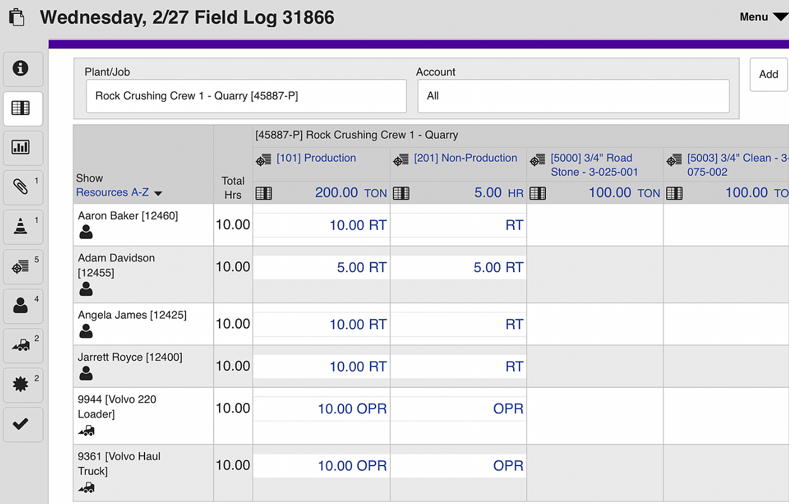
Software for Construction Management Beats Spreadsheets
B2W Maintain at GSI
Improved preventive maintenance and fleet management processes

“You just can’t manage a fleet efficiently and stay on top of preventive maintenance schedules when you’re doing it by hand or relying on spreadsheets,” says Bremer. He attributes much of the financial impact to a dramatic drop in downtime through better adherence to preventive maintenance intervals. Documented PM processes and tasks as well as thorough data on maintenance history are among additional benefits of the software.
B2W Track at BARD Materials
Customized field tracking and analysis for aggregate operations

“Logging into Excel on laptops to report quantities was cumbersome, and it was easy to make mistakes or delete formulas,” says Alex Gribben, Assistant Director of Aggregate Production. “We weren’t efficient or accurate, and we had trouble maintaining consistency across our sites.”
Customized B2W Track logs allow BARD to capture information while its fresh. The process is also systematic, simpler and more consistent. Purpose-built reporting based on the information captured in the logs gives the company powerful new capabilities for analyzing production and making data-driven adjustments quickly. Gribben says that level of reporting and analysis was nearly impossible with spreadsheets due to the manual effort and redundant data entry required.






